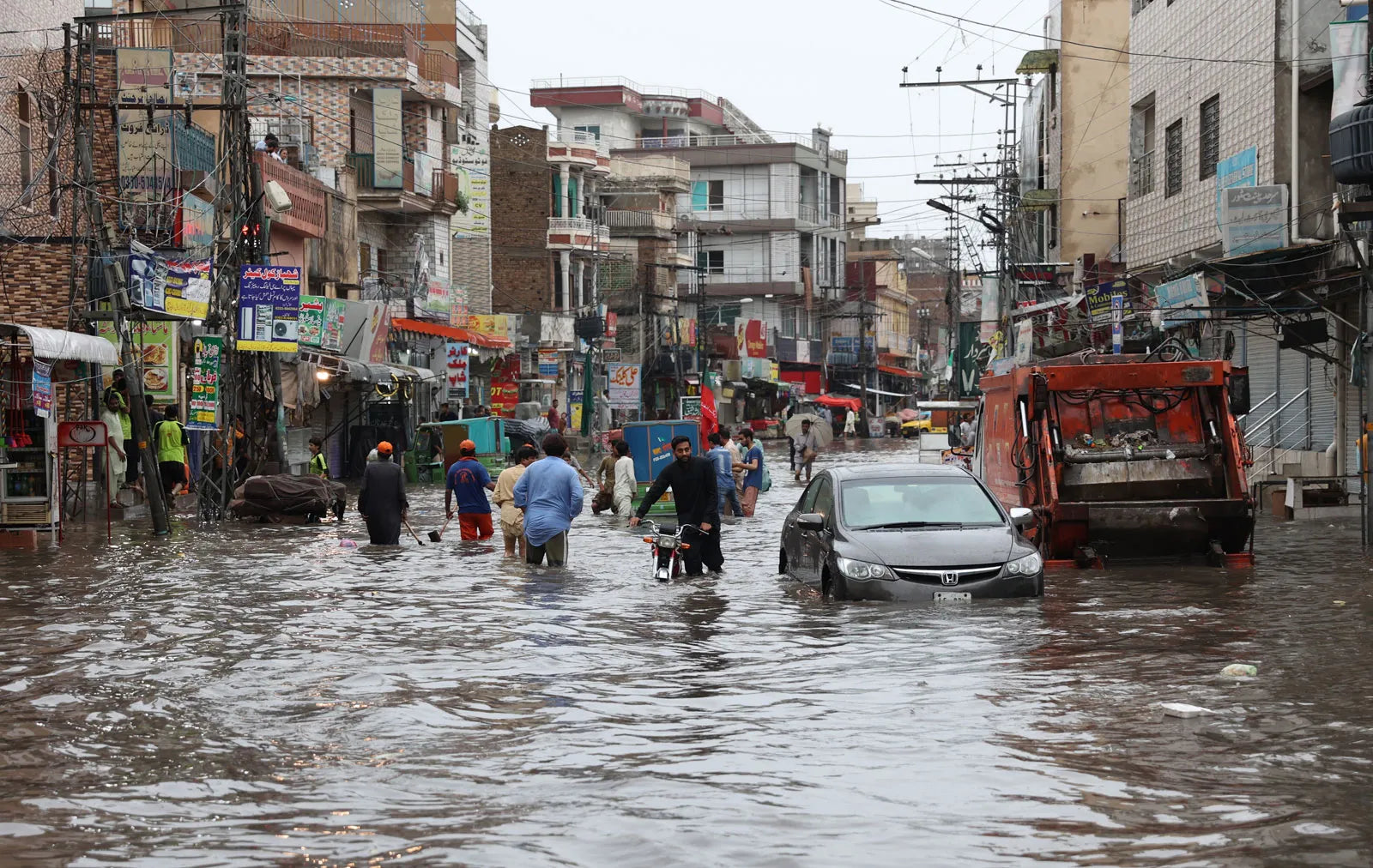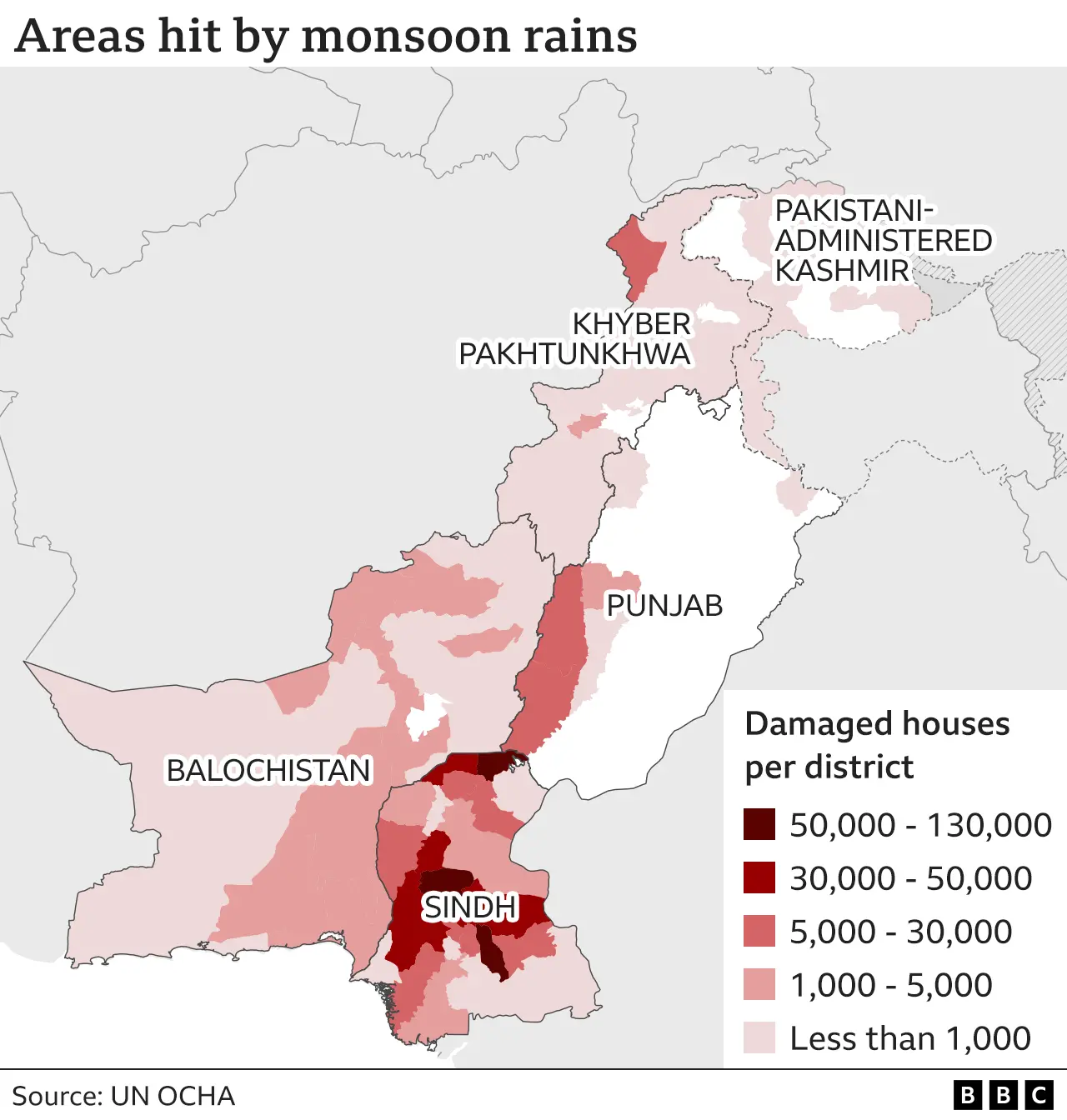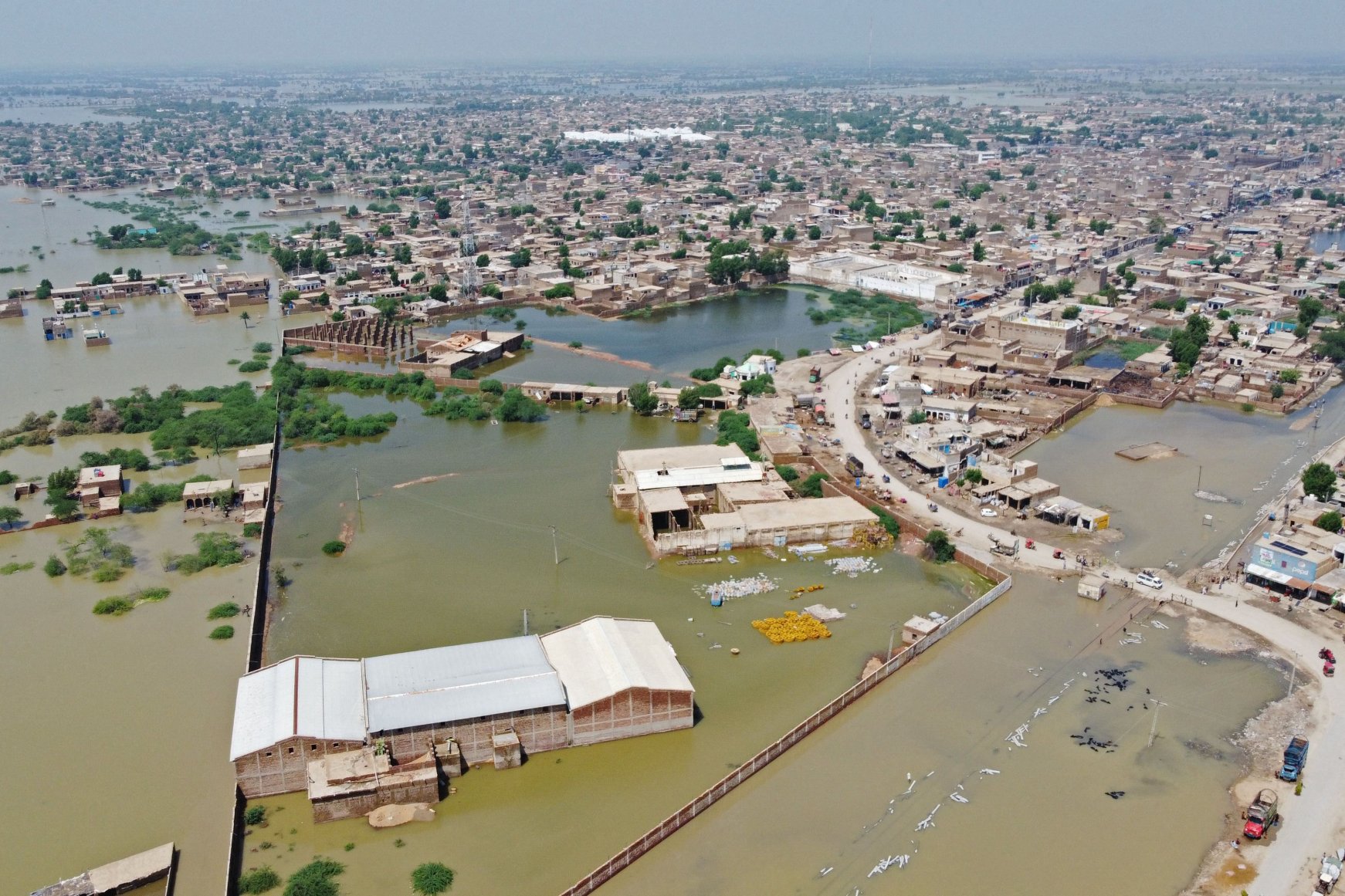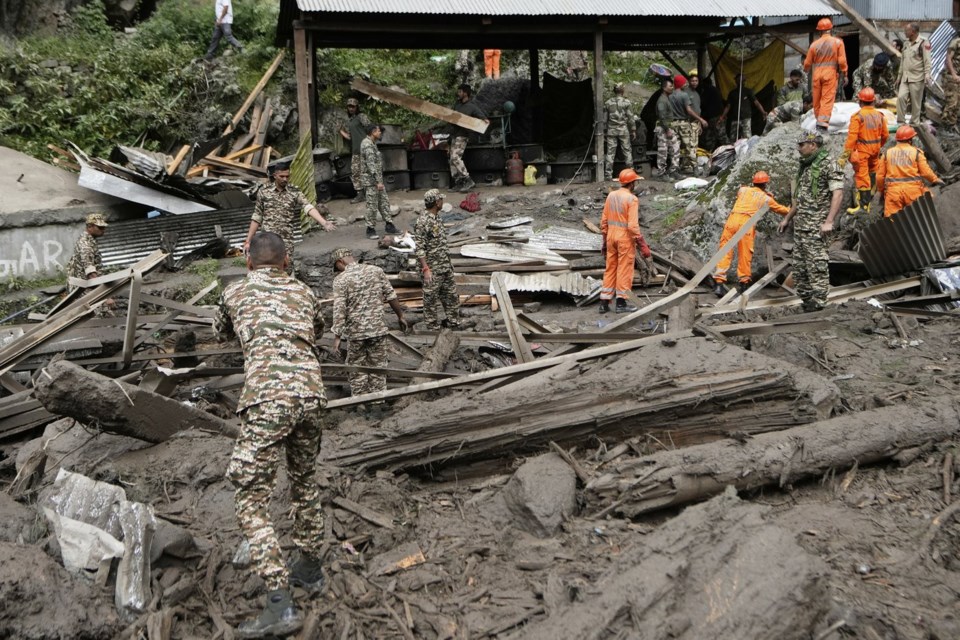

· By Andrew Leonard
Pakistan: When the Rains Don’t Stop
It’s no surprise that Pakistan is one of the first places we look to when we talk about climate change. It’s become one of the most battered countries on earth when it comes to natural disasters — and yet it’s barely responsible for the mess we’re all in.

Here’s the kicker: Pakistan only produces about one percent of global carbon emissions. One percent. And yet, it’s had to endure floods so massive that whole regions have been swallowed. Back in 2022, rain didn’t just fall — it drowned the country.

Entire villages disappeared under water. Millions of people were forced to leave their homes. Farmland, schools, hospitals… gone. Imagine everything you know washed away in a matter of hours.
And right now, as I write this, the story is repeating. This year’s monsoon has triggered fresh floods and landslides, hitting communities that have barely begun to recover from the last disaster. Families are moving again, clinging to whatever they can carry. It’s like the ground itself has turned against them, even though they’ve done almost nothing to cause this crisis.

So what happens next? Of course, the immediate need is survival — food, clean water, somewhere safe to sleep. But survival isn’t enough. Rebuilding takes years, and it costs billions. The big debate is: who pays? Should countries that have burned fossil fuels for centuries, pumping carbon into the atmosphere, step up to cover the damage? Or do we let places like Pakistan shoulder the bill alone, even though their emissions barely register on the global scale?

This is what climate injustice looks like. One part of the world gets rich off polluting the planet, while another watches their homes sink under water. And the truth is, it could be any of us. Here in Australia, we sit in our homes feeling safe for now, but climate change doesn’t stop at borders.
For Pakistan, the next steps are about more than just putting houses back where they stood. It’s about building resilience — stronger homes, early warning systems, and farming practices that can survive shifting weather. And while communities and aid groups on the ground are doing what they can, they can’t do it alone.
So here’s the deal: Pakistan doesn’t need pity, it needs solidarity. Climate change isn’t some faraway problem — it’s here, it’s now, and it’s unfair as hell. The people who’ve done the least to heat up this planet are the ones standing knee-deep in floodwater.
At Sunboli, this is why we exist. From day one, our mission has been about more than umbrellas. We set up this little business with a big dream: to help climate refugees around the world by raising money, providing shade, and offering shelter. Because shade isn’t a luxury — it’s a human right. Sure, we’re small now, but we like to think big. If you don’t dream of changing the world, then what’s the point?
Here’s how you can be part of it. When you buy a Sunboli, you’re not just getting shade for yourself — you’re helping us donate 50% of our profits to provide shade and shelter where it’s needed most. And when you carry a Sunboli, or soon even stitch on one of our iron-on badges, you’re proudly standing with a community. A community that cares for the planet, demands change, and is making it happen. Movements always start small. One person feels empowered, spreads the word, and suddenly a ripple becomes a wave.
Our voices are our most powerful asset. Let’s use them — to throw shade on the corporations and leaders fuelling this crisis, and to throw real shade for the people left to suffer its consequences.
Join the movement. Join Sunboli. Throw shade at climate injustice. Stand with Pakistan.